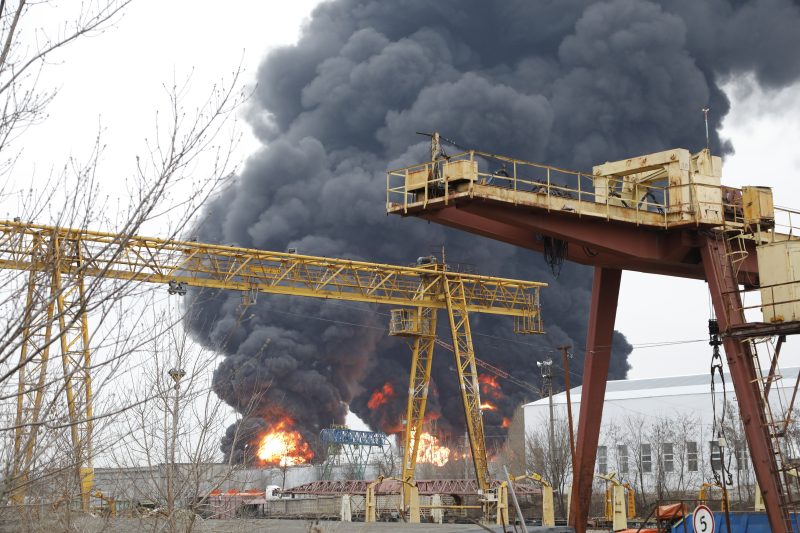The ongoing conflict between Ukraine and Russia has escalated dramatically with Ukraine’s recent attacks on Russian oil refineries, further deepening tensions with the United States. These attacks are of significant concern not only for the immediate impact on the refining industry but also for the broader geopolitical implications they carry.
The strategic targeting of Russian oil refineries by Ukraine represents a calculated move aimed at weakening Russia’s economic power and disrupting its energy supply chains. The refineries serve as critical infrastructure for Russia’s oil industry, and any significant damage or disruption to these facilities could have far-reaching consequences for the country’s economy.
Ukraine’s decision to target these refineries highlights the country’s resolve to challenge Russian influence and assert its own interests in the region. Despite facing a more powerful adversary, Ukraine has shown a willingness to take bold actions to defend its sovereignty and push back against perceived aggression from Russia.
The United States, as a key ally of Ukraine, is closely monitoring the situation and has expressed strong support for Ukraine’s actions against Russian targets. This support underscores the complex dynamics at play in the region, with the U.S. seeking to counter Russian influence and support its allies in Eastern Europe.
The attacks on Russian oil refineries have further heightened tensions between Ukraine and Russia, with both sides engaging in rhetoric and actions that threaten to escalate the conflict further. The risk of a wider conflict erupting in the region is a significant concern for global stability, and efforts to de-escalate the situation are crucial to prevent a full-blown crisis.
In response to Ukraine’s attacks, Russia has condemned the actions as provocative and has vowed to retaliate against what it perceives as acts of aggression. The escalating tit-for-tat exchanges between the two countries risk spiraling out of control and drawing in other regional actors, increasing the likelihood of a broader conflict with potentially devastating consequences.
The international community, including the United Nations and European Union, has called for restraint and dialogue to resolve the conflict peacefully. Diplomatic efforts are underway to find a political solution to the crisis and prevent further escalation that could destabilize the region and threaten global security.
As the situation continues to unfold, all parties involved must exercise caution and engage in constructive dialogue to defuse tensions and prevent the conflict from spiraling out of control. The attacks on Russian oil refineries serve as a stark reminder of the volatile nature of the situation in Eastern Europe and the urgent need for diplomatic efforts to prevent a wider conflict with catastrophic consequences.
